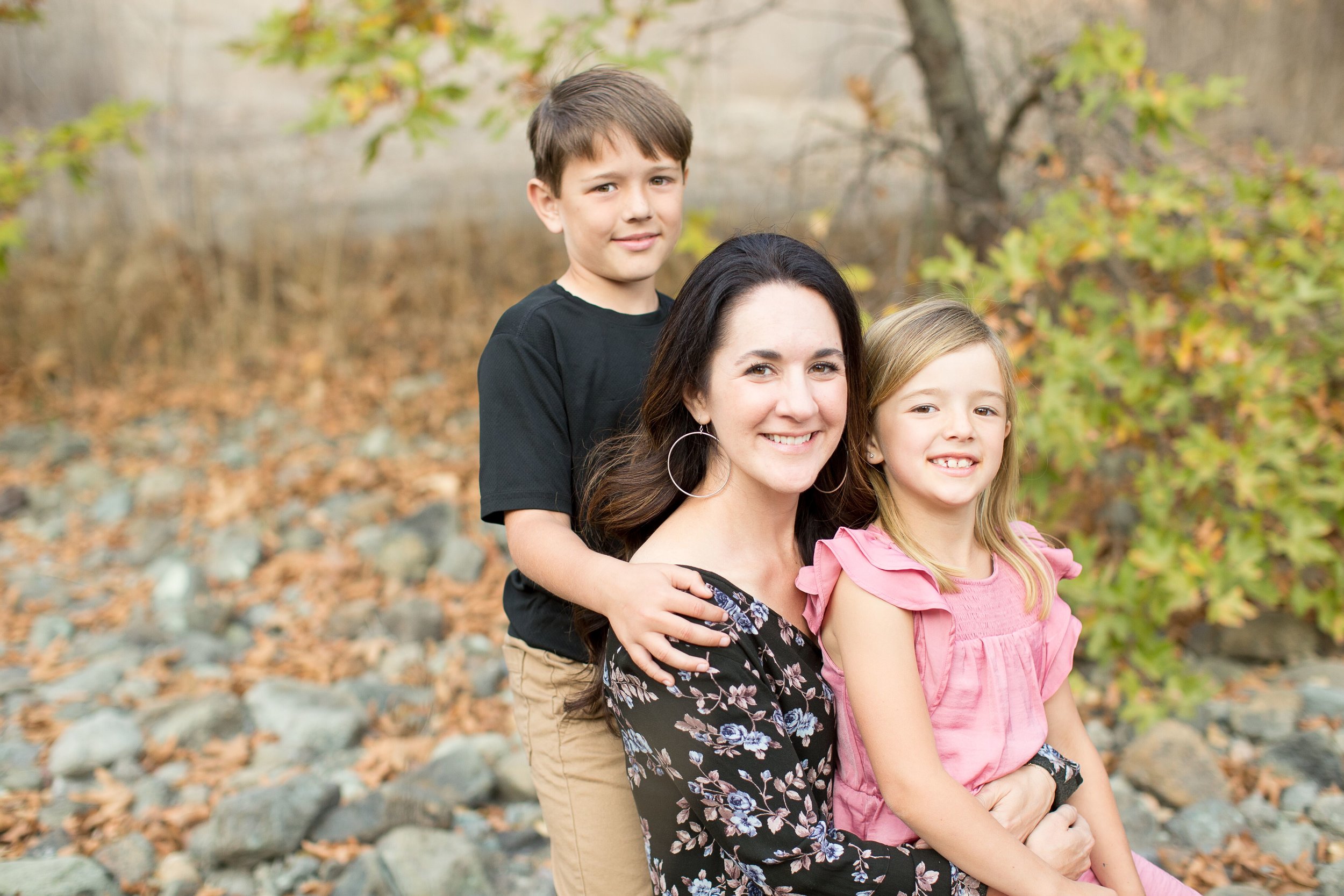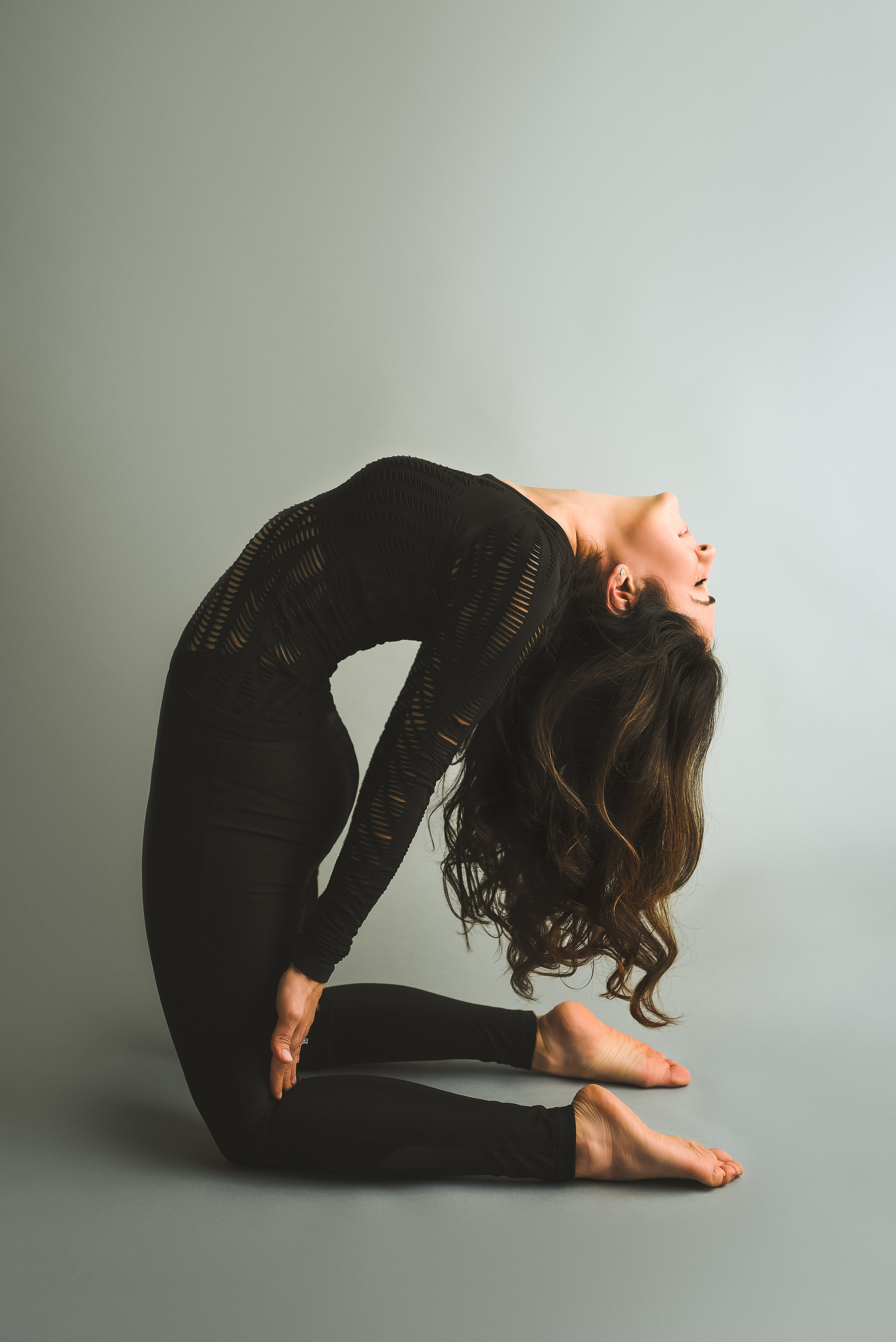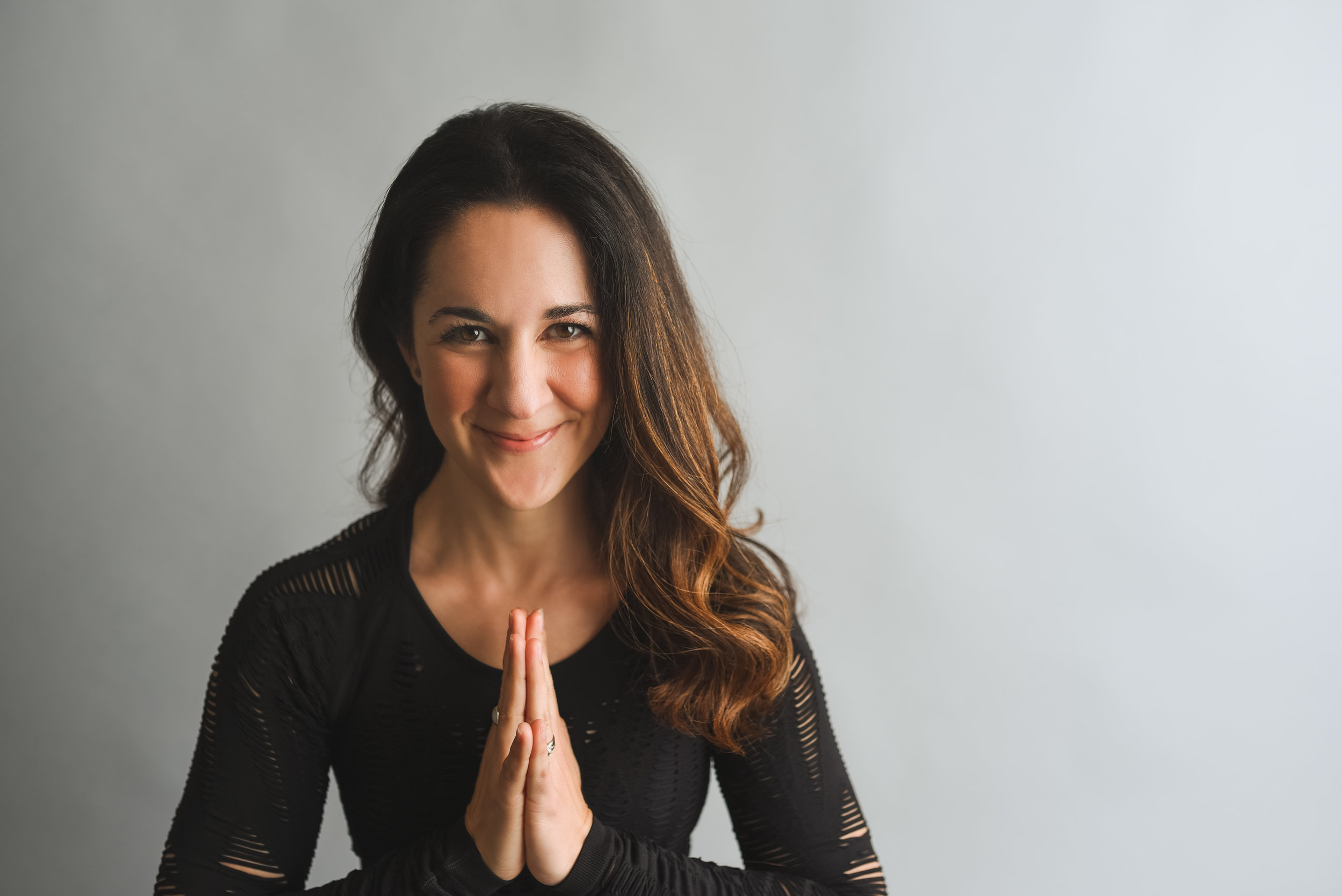Wholehearted
an Interview with Jen Padilla-Burger of nice girl uprising
It is with great joy that we share the work of Jen Padilla-Burger in this important mental health issue of Cordella. Jen is a Marriage & Family Therapist, a yoga instructor, podcaster, a certified Daring Way Facilitator™, founder of Nice Girl Uprising, and an amazing mentor, mama, and friend. In our interview, Jen discusses her positive approach to mental health, work/life balance, inclusive and accessible yoga, and shares some tips on how to begin your own self-care practice. Talking with Jen was such a delight; we hope you can soak up lots of love and wisdom from our shared conversation.
Cate Clother: “Self-care” has many different meanings today, but one that I encounter a lot is from a materialistic viewpoint—like “Take care for yourself! Buy this $10 Lush bath bomb, you deserve it!” While I admit the experience of a Lush bath bomb is a treat, I don’t believe it gets to the core of what true self-care is all about, and leaves out a wide swath of people who can’t afford the latest Goop product or a hot stone massage. What’s your take on self-care and its ties to consumerism?
Jen Padilla-Burger: Yes, I have seen a big materialistic “push” for self-care products and activities. Though certain products can enhance our self-care experience, purchasing them isn’t actually necessary. Oftentimes when I’m feeling the need for a face mask or a scrub, I look around my kitchen to throw some ingredients together! We often already have everything that we need. This goes for the idea of self-care as well. Self-care is more about nurturing ourselves and adding huge doses of self-compassion. Rather than something we’re doing it’s more about a way of being. It begins with softening our inner voice and asking, “Hey Love, what do you need right now to relax and restore?” The answer may be to take several deep breaths or to soak in a warm bath. The key component is the intention behind the activity. We can all breathe and bathe as part of our lives, but when we’re consciously doing the activities to nurture ourselves they take on a whole different meaning.
Cate: You have two young children who you often speak about on your podcast and social media. I am in awe of how you present them with lessons on emotional intelligence, which seem to be naturally woven into your daily lives together. I imagine that having a background in therapy can be both a blessing and a challenge when raising young children! Can you share with us the impact that your therapy practice has had on your mothering, and vice versa?
Jen: My kids are my greatest teachers! I think my background as a therapist has definitely influenced the way that I parent. In our home, we regularly talk about our feelings and our family values. I want my kids to understand who they are and feel comfortable showing up that way in the world.
The first half of my career focused on working with children in the foster care system, who had been abused and neglected and were receiving therapy to help them process their emotions. To this day, I am in awe of the resiliency these kids displayed. In the face of hardship and living with new families they were often still kind-hearted, funny, and smart. On days when parenting is really hard I remind myself of these former clients. They were amazing humans despite their circumstances, so one hard day for me was not going to ruin my kids! The work experience helped me to bring some empathy and self-compassion into my role as a parent.
A challenging part of being a therapist and mama is to accept that my kids are totally different from one another! I had this toolbox of preferred ways of parenting, but each required different styles of motivation and discipline. Parenting has called me to be more flexible and to remember to always do the inner work required to show up wholeheartedly. Connecting with other mothers and participating in individual therapy helped me to examine parts of myself that parenting asked me to look at. Parenting has been my best teacher and greatest gift.
Cate: Along with your Marriage & Family Therapy practice, you are a certified Daring Way Facilitator. How do you incorporate Dr. Brené Brown’s teachings into your therapy practice? Into your life?
Jen: The Daring Way has braided itself into every part of my life. When my kids were babies I read Dr. Brené Brown’s book, The Gifts of Imperfection: Let Go of Who You Think You’re Supposed to Be and Embrace Who You Are. Brené’s message of letting go of perfectionism and developing shame resilience was the message that I had been wanting to hear for decades. I began to live out these ideas and noticed shifts occurring in my life. Her next book, Daring Greatly, was released and I absorbed it in the same way. Shortly after that, Brené announced her newly re-formatted certification program and I jumped on the opportunity. I attended a five-day training in San Antonio, Texas thinking I would spend the time in the back of the room taking really good notes. Nope! We did shame resilience work in small and medium-sized groups. The training was one of the most exhausting and rewarding experiences of my life. I took it home in 2013 and have used it every day since in my practice.
The thing is there isn’t a single human who hasn’t experienced shame (with rare exceptions). So when people come to a session and I can use this work to name the experience of shame, it allows them to take their power back. Having words to place on a feeling or experience gives people the opportunity to identify it and work through it. I’ve witnessed this work strengthen and soften kids, teenagers, and adults in the best ways. My own heart has been shaped by this model so that I’m more compassionate than I’ve ever been, but I also have boundaries like a boss! I’m much more honest about how I’m feeling and more aware of the stories that I’m telling myself to make sense of emotional relationships. Most importantly, though, I’m more apt to practice self-compassion, which in turn improves all of my relationships.
Cate: The Chai Talk podcast is one piece of the Nice Girl Uprising community you’ve founded, which serves women by helping them to “re-connect with themselves, to use their voice, and to live with their whole heart.” What a beautiful mission! Tell us a bit about Nice Girl Uprising, and the impulse behind it!
Jen: Through my work as a therapist and in my relationships with other women I was noticing that a bigger conversation needed to be started. Underneath the smiles and full schedules were women that had lost connection with themselves. In my practice I would regularly ask women, “What are you doing for self-care?” This question was often followed by a long pause, ending in confusion or a confession that self-care wasn’t being practiced at all. Though I was fully committed to maintaining my therapy practice, I felt that I needed to take these topics and present them in a different way. Through careful introspection, I realized that I wanted to speak to the heart of the nice girl. The girl that always seems okay. The girl that puts the needs of others before her own. The girl that says “yes” even when she wants to say “no.” When I say “girl” I’m speaking to women that were raised to be the “nice girl.” Being a nice girl comes with a long list of expectations: be easy, don’t say how you feel, don’t complain, do everything for everyone, let people walk on you, and be nice no matter what. Well, it’s no wonder that we need an uprising! The Nice Girl Uprising movement is about caring for yourself; it’s about establishing boundaries; it’s about living your life according to the values and priorities that you deem important. The only way that we can truly show up for others is to show up for ourselves first.
My goal is to support women in taking a wholehearted view of their lives. Encouraging them to take the time to turn inward, ask hard questions, and take action. I believe practices like slowing down and self-care will help women get really clear on what they want. Through the Chai Talk Podcast and e-courses I’m hoping to share tools that women could use to confidently make choices, have hard conversations, and live lives that truly feel good to them. Each woman in this movement is actively creating what it is becoming. Together we are breathing life into something powerful!
Cate: After blogging for sometime, you launched the Chai Talk podcast and have been podcasting for about a year. What inspired you to launch a podcast? What have been a few of the challenges? The joys? What keeps you coming back to the mic?
Jen: Well, my podcast started on accident. I created audios to be released to the Nice Girl Uprising community on my email list. I loved these audios. The initial recordings were about forgiveness after ending a friendship, saying what you mean, worrying about what other people think, and intentional living.
At the time I was working with a coach and after listening to them she said, “You’re doing a podcast. This is your thing. Go for it!” The thing is, I had no idea how to have a podcast! I told myself that I was good at talking about feelings, but anything technical was done by super smart people way over there away from me. I guess the guiding values of Nice Girl Uprising—kind, fierce, and brave—actually do represent a piece of me, because I knew nothing and went for it anyway. I watched YouTube. I Googled. I took what I had and made it work. It isn’t fancy in the least bit, but it is doing exactly what I dreamed it would. Hearing someone’s voice deepens the connection and speaks to people in a different way. Blogs are wonderful, but using the additional sense of hearing taps into an early way of learning. I hope that sharing my struggles and my lessons will support other women in looking at their own lives and adjusting their ways of thinking/being. I keep coming back to the mic because of the feedback I’ve received. If it’s helping just one person, I’m in.
Cate: Along with your own little bites of wisdom, you speak with other incredible women leaders on your podcast! Can you tell us about speakers you’ve featured in the past, and a few topics you’ve covered?
Jen: I feel so blessed to be surrounded by such amazing, kind, generous, wise women. Last season I spent time interviewing some of my favorite people and I learned so much from my time with them.
I interviewed Natalie Maese who is a yoga instructor and Thai massage therapist. We talked about self-care, our culture of “busy,” girlfriend problems, and how to repair a relationship after a conflict occurs. Natalie has a nurturing presence and desires to support women in their healing process. Natalie can be found at: natalieroseyoga.com.
I interviewed Jenn Prentice who is a professor at Cal Polytechnic State University and runs the blog, “This Is Thirty-Four.” Jenn and I talked about the concept of “growing small” which means attending to the people right in front of you versus aiming to increase faceless numbers on social media. Jenn shared her wisdom about core values, self-care, knowing yourself, and letting go of what other people think. Also, Jenn has given up buying any new clothes or accessories for a whole year, so we get into fashion, consumerism, and capsule wardrobes. Jenn can be found at: thisisthirtyfour.com.
I interviewed Lucy Duni who is a working mother with three boys. We talked about our shared love for the author Shauna Niequist and her book, “Present Over Perfect,” which has greatly impacted both of our lives. Lucy and I talked about failure, the importance of self-talk, parenting, and remembering to slow down in a culture of “busy.”
I interviewed Lisa Story who is a Certified Health Coach and yoga instructor. In the interview it was apparent that Lisa was undergoing an excavation of the heart! Lisa talked about her process of tuning-in and asking hard questions. My favorite part of our discussion was talking about compassion and the challenges related to forgiveness. Lisa can be found at: theconscioushealthcoach.com.
Cate: I so enjoy watching your little time-lapse films of you and your daughter (and sometimes your dogs!) doing yoga together on the lawn. I think a lot of mothers (myself included) might watch these and feel completely flabbergasted at how you can move through these yoga poses so gracefully, all with a little monkey hopping around and climbing all over you! These films bring to mind work/life balance, and the delicate balance a woman must find between motherhood and personal creative flow. Can you speak to this?
Jen: Yoga has been a consistent self-care practice for me for almost two decades now. I started practicing yoga in college and it remained an important part of my life. In 2015 I became a certified yoga instructor. The teacher training deepened my practice and helped me to understand the heart of yoga. It helped shape who I am and my example has rubbed off on my kids. Often I have heard the kids say that they chose to “take a deep breath” before embarking on something scary. I love when my kids join the yoga practice or just come out to keep me company. They add an element of fun and creativity to the practice. Sometimes I can take it all too seriously and they bring the root of the practice back in focus.
I think we can all make choices that are in alignment with our values when we slow down. I need to remind myself of this regularly. The breath and mindful movements allow me to focus on what truly matters. My yoga teacher often told us this mantra, “I listen to understand; I serve to remember.” Work/life balance is a tricky thing. Much of my work for Nice Girl Uprising is creative and it’s mostly unscheduled. This means that I might be trying to write in the evenings or record a podcast on a Saturday morning. I highly value my role as a mother, but I also feel the drive to serve in other ways. I think I do the work/life balance imperfectly, but so far it’s working out okay. Perhaps this is connected to my kids’ presence on the podcast and on social media. They are a part of this movement as it’s showing real people doing real life, not just a shiny version of it.
Cate: Yoga is often seen as a practice reserved for young, white women. Jessamyn Stanley’s practice and her book, Yoga for Every Body, is working on breaking cultural barriers around yoga. I’m wondering what your take is on the perceived white privilege of yoga, as a Latina woman? How can yoga become more accessible to people of color?
Jen: I adore Jessamyn Stanley and her powerful voice in shedding light on self-love. When yoga was first introduced to America it appealed to thin, white, upper middle-class people. However, as the practice of yoga has transformed and become more accessible there has been a call to rise up. Entering a class of thin, bendy women is incredibly intimidating if you don’t look like they do. There has been a complete examination of yogis on social media, on magazine covers, and clothing lines. Many powerful women have asked, “Where are the people of color? Where are the people with larger bodies? Where are the people with disabilities?” If yoga is for every body then it truly needs to represent everybody.
Another potential barrier to yoga being inaccessible is the cost. Attending a yoga class can seem like a luxury for people that are economically disadvantaged. I’ve seen some yoga studios offer community classes at no cost or low cost. This is a great way to explore a studio to decide if it’s a warm, inviting place or if you need to keep looking for the studio that will welcome you as you are.
Cate: What are your recommendations for people looking to begin a more intentional self-care practice, and maybe don’t know where to begin?
Jen: Oh I love this question! I like to say that self-care can be free and effortless. It begins in the gentle way that we speak to ourselves. I like to tell people to imagine how a fairy godmother would speak to them. Would your fairy godmother berate you for a small mistake? No way. She would love you up and remind you of who you are.
Sometimes, I like to think of self-care as the functional activities we all needed as kids. Regular things like meals, bathing, and being nurtured. For example, last night my son lost his basketball game by a landslide. He was tired and emotional. I went over to him, kneeled down and asked, “Can I run you a bath and diffuse some essential oils for you?” After a warm candlelit bath with relaxing music and essential oils, my baby was renewed. It made all the difference. How many of us would love it if someone did that for us? As adults, we get to be both the giver and the receiver. It’s our job to pause and ask, “What do I need right now?” Sometimes it’s slowing down to savor a warm cup of tea. Sometimes it’s saying “no” to the thing we really don’t want to do. Sometimes it’s cancelling everything to intentionally curl up on the couch with good chocolate and our favorite people. Self-care will refresh you and make room for you to return home to yourself again and again.
Cate: What’s coming up next for you and for Nice Girl Uprising? How can we get involved?
Jen: I’m so excited to share the Nice Girl Uprising School of Love & Backbone! This month I released my first e-course, Return to You. It’s a six-week course designed to support women in building lives that feel good. We dig into our values, priorities, and examine our support system. We explore how to set boundaries (like a boss!), protect our time and energy, and to live each day with intention. This course is designed to help women develop a steady confidence in their abilities. It will guide them to prioritize self-care and make it a part of their daily lives. This course will help women to reconnect with themselves so that they can return home again and again.
If this movement speaks to you, I’d love for you to join! The best way to get involved is to sign-up at nicegirluprising.com. When you join the email list you will receive the blogs, podcasts, and special bonus content (like exclusive helpful videos and mini-podcasts). I am so grateful to the people that have subscribed to the email list that I shared the e-course with just them for this first round. We’re building this movement together and I want you to use your voice here. I’ll see you in your inbox!
Jen Padilla-Burger
Jen Padilla-Burger is a Licensed Marriage and Family Therapist, mentor, yoga instructor, wife and mama. She grew up in the mountains of northern California and now lives by the sea on the central coast of California. To learn more about the Nice Girl Uprising movement head to nicegirluprising.com.











